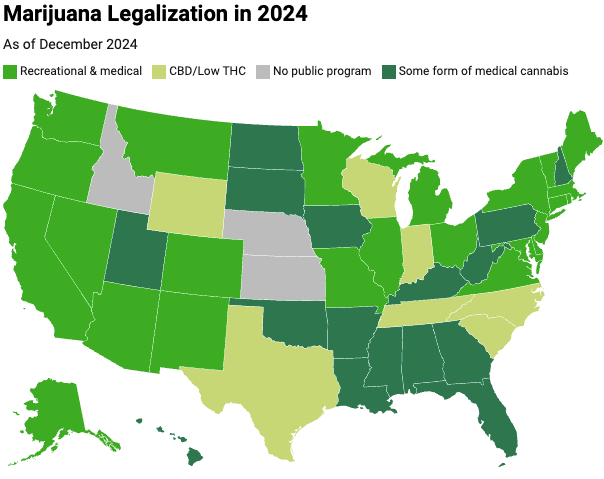Our Weird Drug Laws
Federal and state marijuana policies are wildly out of sync.
·
Saturday, February 10, 2024
·
9 comments
AP (“One state has a shortage of marijuana and its neighbor had too much. Here’s why.“):
Marijuana retailers in Connecticut say a dearth of licensed growers in the state’s fledgling legal pot industry has left them with a shortage of product to sell.
The supply problem has appeared after slow retail growth in neighboring New York last year left growers there struggling with the opposite: an excess of supply.
This would seem to be the most simple of economic problems but, alas, the free market can’t operate here.
It would seem both problems could easily be solved by shipping product a few miles over state lines. But that would violate federal drug laws. So each state that legalizes marijuana is left with its own process for licensing growers and sellers, and trying to create a balance between the two within state borders.
Benjamin Zachs, the chief operating officer of Fine Fettle, which operates five dispensaries in Connecticut, said he worries that low supply in stores is leading some customers back to their former, illegal dealers, and across state lines where he cannot go to get product.
According to a recent analysis by the National Conference of State Legislatures, only Idaho, Nebraska, and Kansas have no allowance for legal use of marijuana at all. In most of the country, recreational use is legal. An pretty much everywhere else allows medical use:

And, yet, it is still a Schedule 1 drug and illegal to use, sell, or transport under Federal law. (The Biden administration is recommending re-classifying it as a Schedule 3 drug, but it hasn’t happened yet.) Which leaves us with a farce of a public policy, where people are openly breaking Federal law across the country—including in public view—with no enforcement except at margins like mass transport across state lines.


Be the first to comment